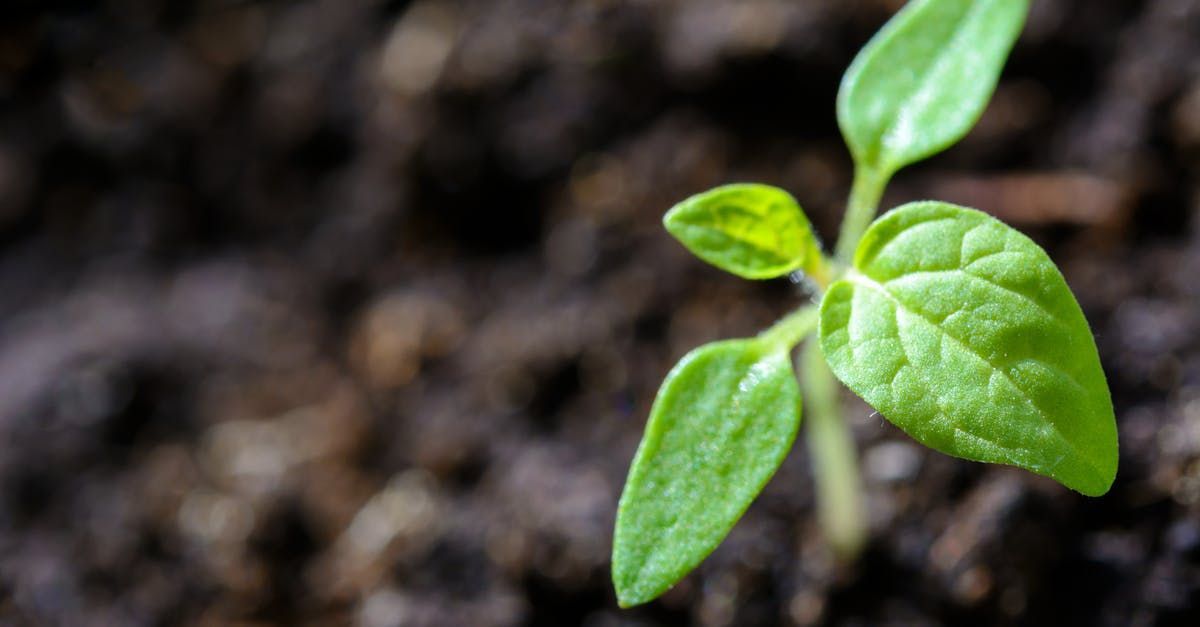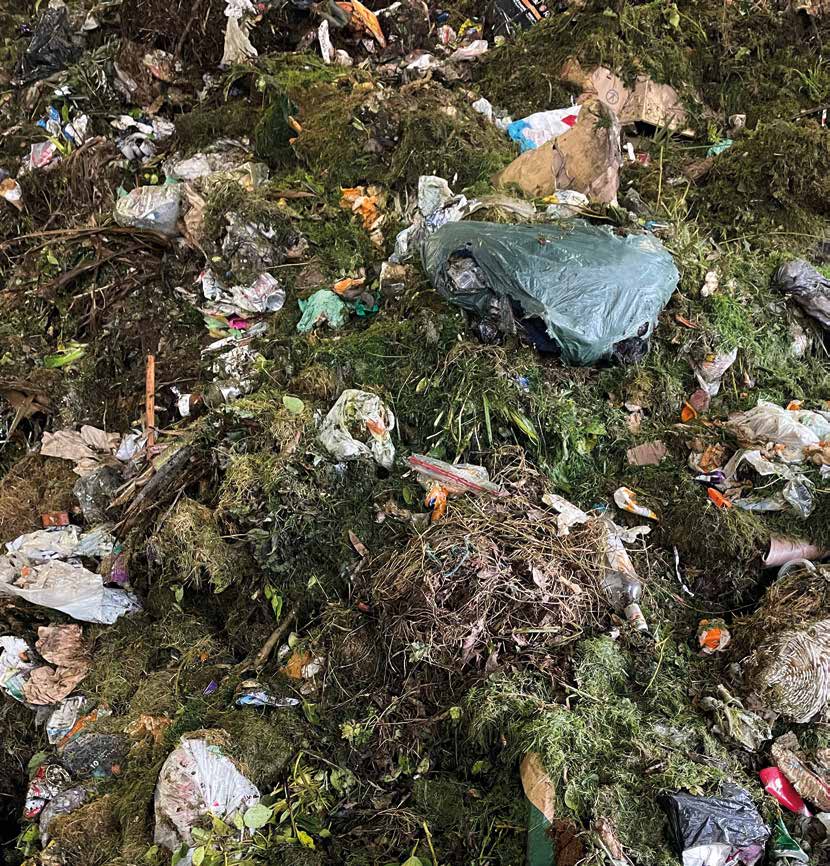
NEWS
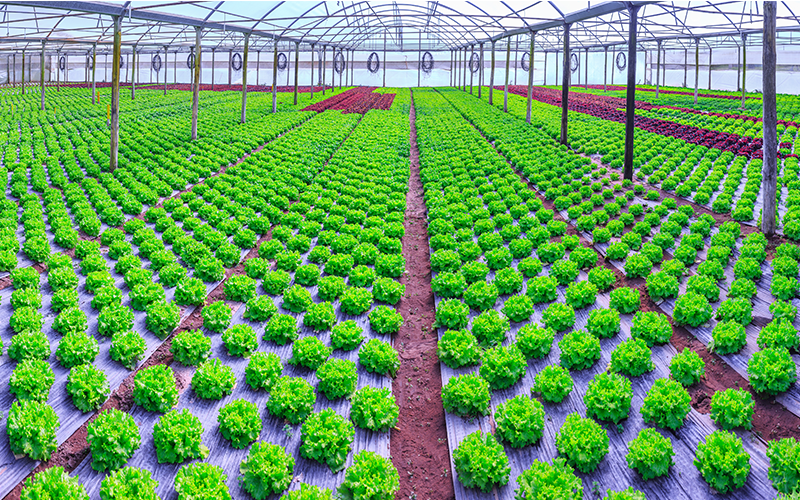
Research has found that farm plastics are a major pollution problem but not a priority for supermarkets. By David Burrows . There is more plastic in soils than in the sea, warned the Food and Agriculture Organization in 2021, but is anything being done about it? Not really, according to research published by the Environmental Investigation Agency (EIA). Agriplastics include protective greenhouse covers, plastic mulching, netting, pipes for irrigation and silage films. They increase short-term crop yields and extend local growing seasons, but can also reduce long-term productivity by deteriorating soil quality, EIA noted. They can also contaminate land, rivers, oceans and air. The campaigners quizzed 10 UK supermarkets – Aldi, Asda, Co-op, Iceland, Lidl, Marks and Spencer, Morrisons, Sainsbury’s, Tesco and Waitrose – about use of agriplastic within their supply chains and what they are doing to manage any pollution risks. All the supermarkets have engaged somewhat with suppliers on the issue – through trials, raising awareness or third-party certification standards – but only Lidl said it had sufficient information about the impact and risks of agriplastic pollution on the environment and human health. Measurable objectives, company-level sourcing policies and funding were also found to be lacking across all the chains. Indeed, seven supermarkets are currently working in some capacity with suppliers on the reduction and responsible management of agriplastics, with four supermarkets having more than one project underway in certain produce or product categories. However, none of the projects had any measurable or time-bound targets. In the UK, only 30% of non-packaging agri-plastics, such as polytunnels and bale wrap — excluding packaging such as chemical containers and sacks — is collected for reuse, according to APE (Agriculture Plastics Environment) UK, an industry-led initiative aiming to increase recycling of farm plastics. “[These supermarkets] have other sustainability targets, including plastic packaging reduction targets but little or nothing regarding the plastics being used by their suppliers to cultivate food and the devastating pollution that results,” said Lauren Weir, EIA senior ocean campaigner. "We need genuinely sustainable alternatives and for those with the purchasing power, such as our major grocery retailers, to take unified action across their international supply chains to ensure the UK’s food supply chain does not result in driving damage in other sourcing regions,” she added. The 10 supermarkets all said they’d welcome a sector-wide initiative dedicated to tackling agriplastic pollution. EIA called for “immediate and urgent action” on the most damaging agriplastics – microplastic applications and mulch films – and warned against simply switching to other materials (as many have done with consumer-facing packaging). Substitution is a “false solution”, the group said. The National Farmers’ Union has called for more research into bio-based alternatives to plastic that could be composted on farms. The Bio-based and Biodegradable Industries Association has argued that its members “make materials which are designed to resolve this pollution”. Some 12.5 million tonnes of plastic is used in agricultural production every year, FAO noted in its global report, the majority (93%) of it on land – which makes soil the likely destination for anything that’s damaged, degraded and discarded. How much, what happens to it all and the impact it has are poorly understood, according to the Environment Agency’s 2019 ‘The state of the environment: soil’ report . There are also increasing concerns about the levels of plastic spread to land in digestate and sewage sludge . Other than an unsupported agriplastic burying and burning ban, the UK government has little or no policy ideas or plans to address the issues, despite having the regulatory responsibility to do so, said EIA. Others have been trying to raise awareness for years. “Healthy soils are vital to sustaining food supplies, act as a critical flood defence and store three times more carbon than the atmosphere, yet the UK does nothing as study after study reveals that plastic contamination of soil is even worse than it is in the sea,” Ellen Fay, director of the Sustainable Soils Alliance (SSA), told Ends Report following the FAO report . EIA is calling for mandatory reporting on agricultural plastic products and an extended producer responsibility scheme for the materials. Further research into alternatives and their benefits and trade-offs is needed, as well as support for agroecology and permaculture in UK farms to help reduce agriplastic use. The new research comes in the midst of fruit and vegetable shortages. The trouble is that agricultural plastic helps grow more food in a hungry world, APE UK chief executive Ian Creasey told the FT . “Plastics play a really important part in farm life and have environmental benefits,” he said. “That works if you efficiently collect the plastic on the farm. It doesn’t work if there isn’t that ‘circularity’ and you let that plastic get burnt or go to landfill.” April 11, 2023 Read the original article here on Footprint, Sustainable Responsible Business
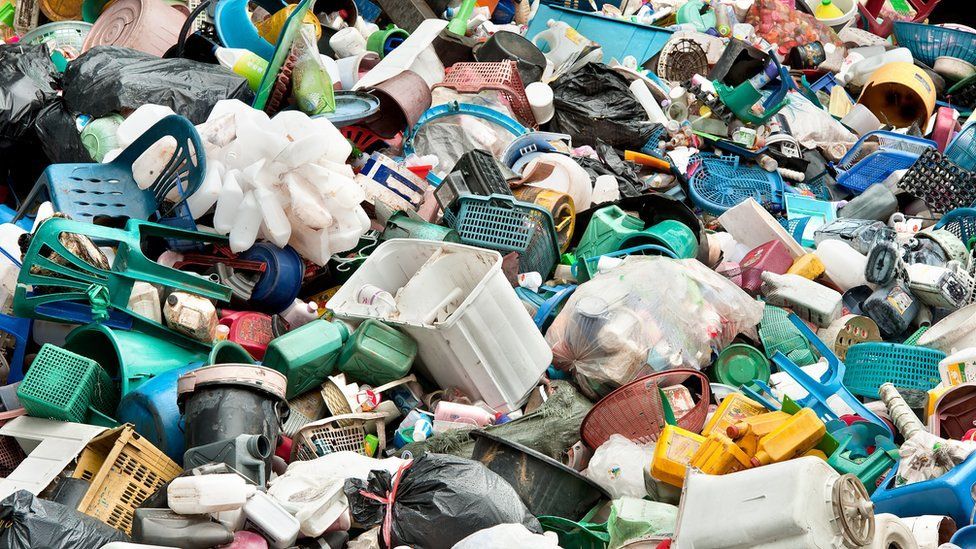
Environment Secretary Thérèse Coffey is set to confirm a ban on the supply of a range of harmful plastics later this week. The ban will include single use plastic plates, trays, bowls, cutlery, balloon sticks, and certain types of polystyrene cups and food containers. This comes after the Government’s consultation on plans to ban these single-use plastics, which received overwhelming public support. To allow businesses time to prepare, the bans will be introduced in England from October 2023. Environment Secretary Thérèse Coffey said: “A plastic fork can take 200 years to decompose, that is two centuries in landfill or polluting our oceans. “I am determined to drive forward action to tackle this issue head on. We’ve already taken major steps in recent years – but we know there is more to do, and we have again listened to the public’s calls. “This new ban will have a huge impact to stop the pollution of billions of pieces of plastic and help to protect the natural environment for future generations.” England uses 608 million single-use plates and 2.3 billion items of single-use cutlery — most of which are plastic — per year, but only 10% are recycled. Plastic cutlery was also in the top 15 most littered items by count in 2020*. These plans build on efforts to eliminate avoidable plastic waste, including one of the world’s toughest bans on microbeads in rinse-off personal care products announced in 2018, restrictions on the supply of single-use plastic straws, drink stirrers and cotton buds in 2020, and our Plastic Packaging Tax in April 2022. We have also taken action at an international level and have led the way in pushing for an ambitious and effective treaty to end plastic pollution, including through a coalition of over 50 countries. Through the Environment Act, the Government is bringing in a wide range of further measures to tackle plastic pollution and litter, including: Introducing a Deposit Return Scheme for drinks containers to recycle billions more plastic bottles and stop them being landfilled, incinerated, or littered. Through a small deposit placed on drinks products, the DRS will incentivise people to recycle; Our Extended Producer Responsibility scheme will mean packaging producers will be expected to cover the cost of recycling and disposing of their packaging. Our plans for Consistent Recycling Collections for every household and business in England will ensure more plastic is recycled. * According to Defra’s 2020 Litter Composition Report

Kevin Clarke got the opportunity to pitch our riji trays to investors at Venturefest South. An exciting day full of people with new ideas deserving of winning some capital. 'A compostable alternative to the single-use trays in convenience meals and takeaways, which are use two billion times a year in the UK, developed by KCC Packaging in Eastleigh. Managing Director Kevin Clarke said: "Everybody knows the current takeaway-type products which are used, which are largely polypropylene, a microwavable product and a plastic which is not widely recycled." He said KCC Packaging's products are suitable for fresh or frozen foods and safe at up to 240 degrees Celsius in the oven. They are made from plants and have a low carbon footprint, he said, and the range includes trays, lids for takeaways and cups.' Article below:
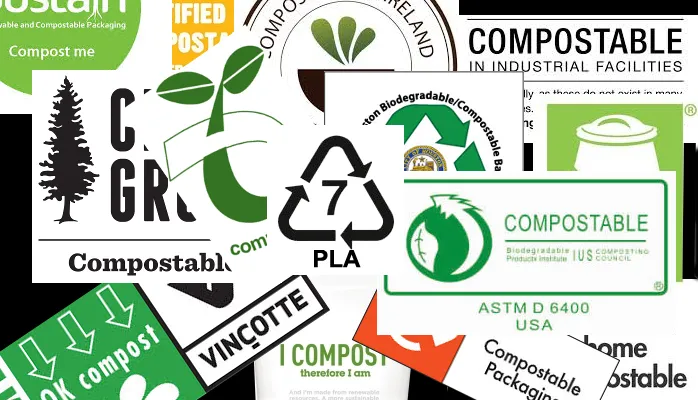
Responding to this week’s UCL study into the use of home compostable packaging in the UK, Chairman of the Bio-based and Biodegradable Industries Association, Andy Sweetman, said: “The results of this welcome research show that compostable packaging actually does biodegrade but that there is huge variability when the process is handled through home composting, and confusion over which materials are suitable. Many home composters are actually trying to compost plastics which are not at all compostable. We need to end the use of terms like degradable and biodegradable to avoid consumer confusion." “In order to treat food and garden waste most effectively on a large scale, we need household collection systems and industrial composting. Consumers should be encouraged to place certified compostable packaging into their food waste bins as in many countries around the world." “Home composting is a part of the picture and we encourage this practice, while large scale composting achieved through an industrial process, involving both a composting phase and anaerobic digestion to produce soil-improvers and biogas will give all householders a route to recycling food and garden waste along with certified compostables".

The REA (The Association for Renewable Energy and Clean Technology) have published a compost site map. This is collated from published data and is separate from the work REAL are doing on sites accepting compostables. The map shows permitted compost sites, those who are ABP approved (so can take food waste) and those who are Compost Certification Scheme (PAS100) certified. Find the map HERE.
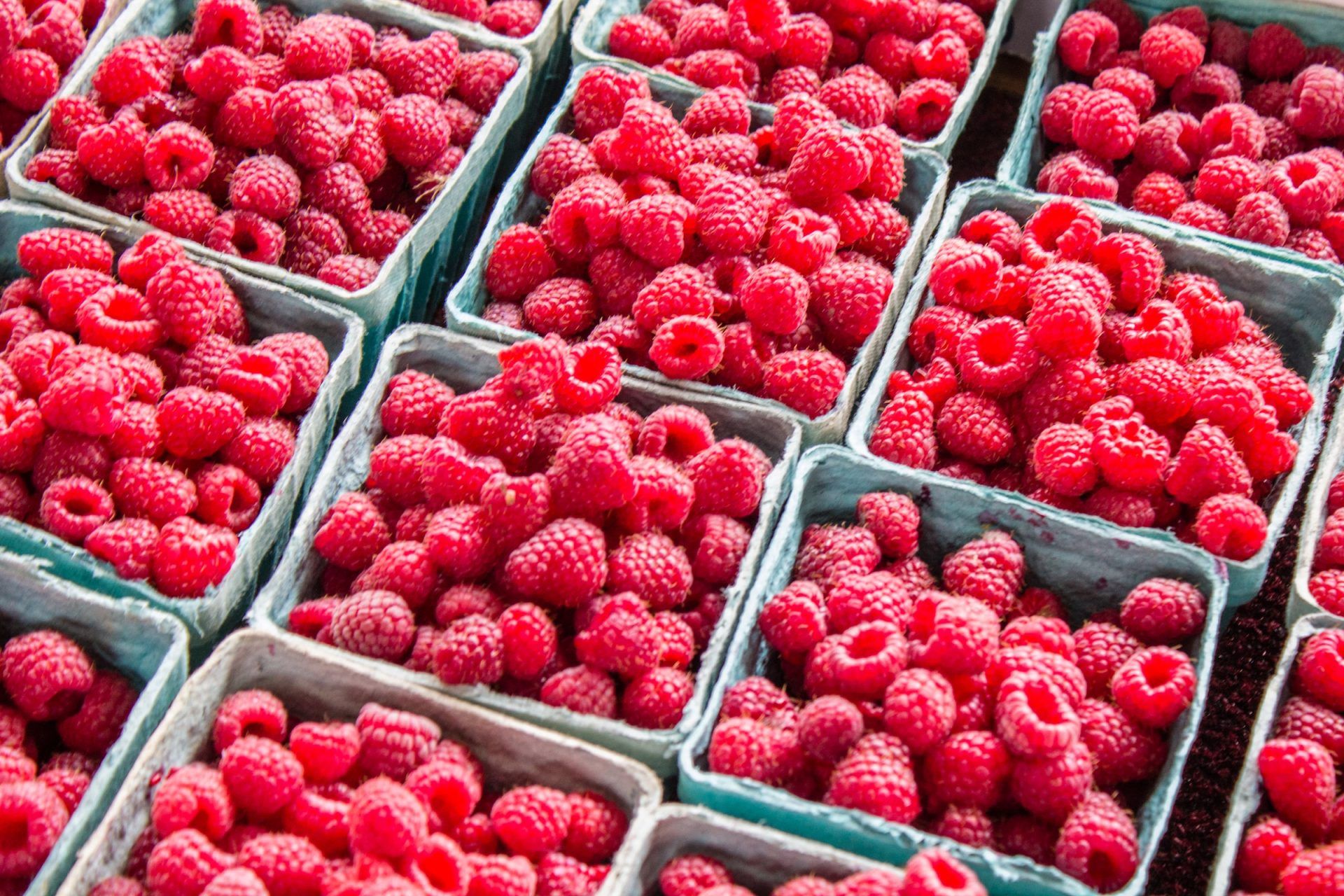
Sustainable packaging challenges for the county and beyond On Thursday 15 September 2022, the University hosted Growing Kent and Medway’s first Sustainable Packaging Forum, bringing together key stakeholders from industry, policy and academia for an afternoon of inspiring presentations and the opportunity to discuss how to deliver a real circular sustainable packaging ecosystem across Kent and beyond. Attendees enjoyed a series of inspiring talks from leading industry on the current sustainable packaging goals and challenges facing the food and drink sector, as well as getting the chance to join a regional business network to address packaging challenges and targets from the roots up. Opening remarks were given by Dr Lori Fisher, Growing Kent & Medway research fellow, who introduced the forum’s aims and reflected on the current challenges in packaging, and opportunities to collaborate. The first speaker, Dan Crooks from iFruit, introduced the packaging challenges from a suppliers perspective. Dan was followed by Dr Jon Mitchell from Nextloopp who introduced the audience to their circular food-grade PP from post-consumer packaging. The audience then heard from Kevin Clarke from KCC Packaging who presented how compostables can make food waste work in a circular environment. Graham Hayward, from Kent based paper mill Smurfit Kappa, then showcased the sustainability capabilities of the mill. The final speaker, Kieran Bevan from Triflex productions took the audience through sustainable flexible packaging and solutions for food and drink businesses. Dr Rob Barker, Senior Lecturer at Kent and co-host of the event said: “It’s clear that we have the technologies emerging across the sector to move away from a packaging ecosystem reliant on virgin and traditional packaging materials, but much work is still needed to optimise and close the loop on these systems and allow us to move quickly enough to embrace new technologies. “This will only be possible through the continued, open conversations that the Forum started and we’re excited at the University of Kent and as the Growing Kent and Medway consortia to take a lead in facilitating these conversations and enabling collaborations between our academic community and industry to make this vision of a circular sustainable packaging ecosystem a reality.” Networking was held before and after the forum, so that delegates were able to network with other like-minded attendees and discuss their ideas with the guest speakers. This provided a unique opportunity for attendees to meet technical experts to discuss packaging needs and challenges, and information regional decision making. Audience members were able to ask questions to the speakers and receive feedback on their packaging needs and ideas. Kevin Clarke at KCC Packaging said: “The event enabled a robust discussion on the challenges of allowing the status quo to persist. Much stronger actions are needed to create meaningful systemic changes in packaging & food waste management, if the UK is to gain better outcomes for the environment in our drive to reach net zero. This need for action was underlined by the broad section of industry experts who supported the event.” The team at Kent will be issuing a report on the future of sustainable packaging in the coming months. For more information about the Growing Kent & Medway Sustainable Packaging Forum, please contact the team growingbiotech@kent.ac.uk . By Katherine Moss 27 September 2022 Read the original article here
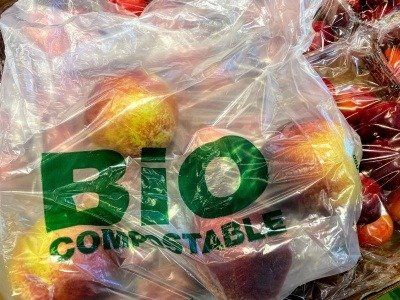
The Bio-based and Biodegradable Industries Association (BBIA) has written to the Department for Environment, Food, and Rural Affairs (Defra) challenging the stance it has currently adopted with compostable packaging. Despite growth in demand for ‘organic recycling through composting and anaerobic digestion’, the Government’s response to the consultation on Extended Producer Responsibility (EPR) shows a disregard for compostables. The letter also claims that, ahead of an official response on the Consistency consultation, Minister Jo Churchill ‘stated to a fellow stakeholder that “we do not want compostable bags”’. By determining compostable bags to be unsuitable for food waste collections in England, the letter says, Defra is seemingly stating that ‘we some small doubts about compostable films, despite clear evidence in their favour, we prefer not to have them. Instead, we’ll have plastic bags, which we have no doubt will leave macro and microplastics in compost, digestate, and, therefore, soils.’ In recent months, BBIA said, Defra has developed a ‘decidedly polemic view regarding compostables and globally accepted standards for biodegradability’. Continuing, the association asserted that ‘rather than engage in meaningful scientific discussion’, the Department has ‘opted to move forward with a system for packaging and food waste which goes against the actual evidence, net-zero ambitions and desire of the market.’ In the letter, BBIA says it has been in ‘regular contact’ with Defra officials, seeking meetings with Minister Jo Churchill and offering her a visit to ‘the UK’s largest composting facility, which actively seeks more compostable packaging.’ However, the association claims that the apparent lack of engagement is ‘undemocratic’. The letter concludes by inviting the Minister and the Department’s Chief Scientific Advisor to meet with the BBIA to discuss the risks posed by the current policy stance, including: The contribution of compostable products (bags, packaging and other items such as teabags) to the future bioresources (waste) industry and UK PLC in the context of net-zero. The underlying science and standards relating to biodegradation of (compostable plastic) materials and the false assumptions relating to microplastics. The letter is accompanied by others from stakeholders in the compostables industry. In one of these, organics reprocessors ENVAR, questions the evidence behind the decision to label compostable packaging as ‘do not recycle’. This, ENVAR asserts, will damage producers of compostable packaging and ‘raise doubts’ among the company’s compost customers. Keenan Recycling also issued a letter to Defra on compostable packaging’s exclusion from recycling labels, stating that the Department’s position that compost may contain microplastics ‘could really set the industry back’, damaging the trust the company has built with farmers and agricultural groups. The letter called on Defra to explain its grounds for this claim, adding that ‘if there is an absence of such evidence’, it would ‘appreciate the ability to continue to collect and process compostable packaging along with food waste’. By Emma Love | 20 May 2022 Read the original article here
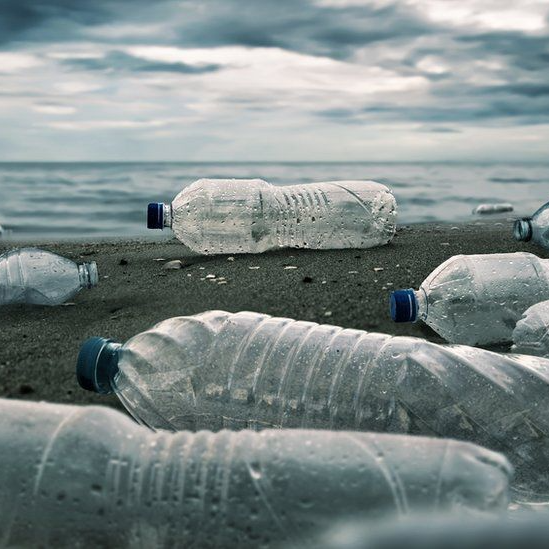
Pollution from plastics is a global emergency in need of a robust UN treaty, according to a report. The Environmental Investigation Agency (EIA) says there's a cascade of evidence of harm from plastics. It argues that the plastic pollution threat is almost equivalent to climate change. The air we breathe now contains plastic micro particles, there’s plastic in Arctic snow , plastic in soils and plastic in our food. It's reported, for instance, that about 20 elephants in Thailand have died after eating plastic waste from a rubbish dump. The authors urge nations to agree a UN treaty with binding targets for reducing both plastic production and waste. "There is a deadly ticking clock counting swiftly down," said the EIA’s Tom Gammage. "If this tidal wave of pollution continues unchecked, the anticipated plastics in the seas by 2040 could exceed the collective weight of all fish in the ocean." The United Nations has identified three existential environmental threats - climate change, biodiversity loss and pollution - and concluded that they must be addressed together. Multilateral agreements on biodiversity loss and climate have existed for nearly 30 years (although they have failed to halt CO2 emissions or protect the natural world). The idea of a dedicated plastics treaty has been opposed by some nations in recent years. But more than 100 countries, including the UK, are said to favour a treaty being proposed at the next UN Environment Assembly in February and March. Sources say outright opposition is weakening, although there's a dispute as to how strict the treaty should be, and whether it should be legally binding or voluntary. US President Joe Biden has announced that the US now supports a global agreement, previously resisted by former President Donald Trump. It’s not clear, though, whether he can win approval from Congress, as most plastics are made from oil and gas - and they're both produced in the US.

Research has found that farm plastics are a major pollution problem but not a priority for supermarkets. By David Burrows . There is more plastic in soils than in the sea, warned the Food and Agriculture Organization in 2021, but is anything being done about it? Not really, according to research published by the Environmental Investigation Agency (EIA). Agriplastics include protective greenhouse covers, plastic mulching, netting, pipes for irrigation and silage films. They increase short-term crop yields and extend local growing seasons, but can also reduce long-term productivity by deteriorating soil quality, EIA noted. They can also contaminate land, rivers, oceans and air. The campaigners quizzed 10 UK supermarkets – Aldi, Asda, Co-op, Iceland, Lidl, Marks and Spencer, Morrisons, Sainsbury’s, Tesco and Waitrose – about use of agriplastic within their supply chains and what they are doing to manage any pollution risks. All the supermarkets have engaged somewhat with suppliers on the issue – through trials, raising awareness or third-party certification standards – but only Lidl said it had sufficient information about the impact and risks of agriplastic pollution on the environment and human health. Measurable objectives, company-level sourcing policies and funding were also found to be lacking across all the chains. Indeed, seven supermarkets are currently working in some capacity with suppliers on the reduction and responsible management of agriplastics, with four supermarkets having more than one project underway in certain produce or product categories. However, none of the projects had any measurable or time-bound targets. In the UK, only 30% of non-packaging agri-plastics, such as polytunnels and bale wrap — excluding packaging such as chemical containers and sacks — is collected for reuse, according to APE (Agriculture Plastics Environment) UK, an industry-led initiative aiming to increase recycling of farm plastics. “[These supermarkets] have other sustainability targets, including plastic packaging reduction targets but little or nothing regarding the plastics being used by their suppliers to cultivate food and the devastating pollution that results,” said Lauren Weir, EIA senior ocean campaigner. "We need genuinely sustainable alternatives and for those with the purchasing power, such as our major grocery retailers, to take unified action across their international supply chains to ensure the UK’s food supply chain does not result in driving damage in other sourcing regions,” she added. The 10 supermarkets all said they’d welcome a sector-wide initiative dedicated to tackling agriplastic pollution. EIA called for “immediate and urgent action” on the most damaging agriplastics – microplastic applications and mulch films – and warned against simply switching to other materials (as many have done with consumer-facing packaging). Substitution is a “false solution”, the group said. The National Farmers’ Union has called for more research into bio-based alternatives to plastic that could be composted on farms. The Bio-based and Biodegradable Industries Association has argued that its members “make materials which are designed to resolve this pollution”. Some 12.5 million tonnes of plastic is used in agricultural production every year, FAO noted in its global report, the majority (93%) of it on land – which makes soil the likely destination for anything that’s damaged, degraded and discarded. How much, what happens to it all and the impact it has are poorly understood, according to the Environment Agency’s 2019 ‘The state of the environment: soil’ report . There are also increasing concerns about the levels of plastic spread to land in digestate and sewage sludge . Other than an unsupported agriplastic burying and burning ban, the UK government has little or no policy ideas or plans to address the issues, despite having the regulatory responsibility to do so, said EIA. Others have been trying to raise awareness for years. “Healthy soils are vital to sustaining food supplies, act as a critical flood defence and store three times more carbon than the atmosphere, yet the UK does nothing as study after study reveals that plastic contamination of soil is even worse than it is in the sea,” Ellen Fay, director of the Sustainable Soils Alliance (SSA), told Ends Report following the FAO report . EIA is calling for mandatory reporting on agricultural plastic products and an extended producer responsibility scheme for the materials. Further research into alternatives and their benefits and trade-offs is needed, as well as support for agroecology and permaculture in UK farms to help reduce agriplastic use. The new research comes in the midst of fruit and vegetable shortages. The trouble is that agricultural plastic helps grow more food in a hungry world, APE UK chief executive Ian Creasey told the FT . “Plastics play a really important part in farm life and have environmental benefits,” he said. “That works if you efficiently collect the plastic on the farm. It doesn’t work if there isn’t that ‘circularity’ and you let that plastic get burnt or go to landfill.” April 11, 2023 Read the original article here on Footprint, Sustainable Responsible Business

Environment Secretary Thérèse Coffey is set to confirm a ban on the supply of a range of harmful plastics later this week. The ban will include single use plastic plates, trays, bowls, cutlery, balloon sticks, and certain types of polystyrene cups and food containers. This comes after the Government’s consultation on plans to ban these single-use plastics, which received overwhelming public support. To allow businesses time to prepare, the bans will be introduced in England from October 2023. Environment Secretary Thérèse Coffey said: “A plastic fork can take 200 years to decompose, that is two centuries in landfill or polluting our oceans. “I am determined to drive forward action to tackle this issue head on. We’ve already taken major steps in recent years – but we know there is more to do, and we have again listened to the public’s calls. “This new ban will have a huge impact to stop the pollution of billions of pieces of plastic and help to protect the natural environment for future generations.” England uses 608 million single-use plates and 2.3 billion items of single-use cutlery — most of which are plastic — per year, but only 10% are recycled. Plastic cutlery was also in the top 15 most littered items by count in 2020*. These plans build on efforts to eliminate avoidable plastic waste, including one of the world’s toughest bans on microbeads in rinse-off personal care products announced in 2018, restrictions on the supply of single-use plastic straws, drink stirrers and cotton buds in 2020, and our Plastic Packaging Tax in April 2022. We have also taken action at an international level and have led the way in pushing for an ambitious and effective treaty to end plastic pollution, including through a coalition of over 50 countries. Through the Environment Act, the Government is bringing in a wide range of further measures to tackle plastic pollution and litter, including: Introducing a Deposit Return Scheme for drinks containers to recycle billions more plastic bottles and stop them being landfilled, incinerated, or littered. Through a small deposit placed on drinks products, the DRS will incentivise people to recycle; Our Extended Producer Responsibility scheme will mean packaging producers will be expected to cover the cost of recycling and disposing of their packaging. Our plans for Consistent Recycling Collections for every household and business in England will ensure more plastic is recycled. * According to Defra’s 2020 Litter Composition Report

Kevin Clarke got the opportunity to pitch our riji trays to investors at Venturefest South. An exciting day full of people with new ideas deserving of winning some capital. 'A compostable alternative to the single-use trays in convenience meals and takeaways, which are use two billion times a year in the UK, developed by KCC Packaging in Eastleigh. Managing Director Kevin Clarke said: "Everybody knows the current takeaway-type products which are used, which are largely polypropylene, a microwavable product and a plastic which is not widely recycled." He said KCC Packaging's products are suitable for fresh or frozen foods and safe at up to 240 degrees Celsius in the oven. They are made from plants and have a low carbon footprint, he said, and the range includes trays, lids for takeaways and cups.' Article below:

Responding to this week’s UCL study into the use of home compostable packaging in the UK, Chairman of the Bio-based and Biodegradable Industries Association, Andy Sweetman, said: “The results of this welcome research show that compostable packaging actually does biodegrade but that there is huge variability when the process is handled through home composting, and confusion over which materials are suitable. Many home composters are actually trying to compost plastics which are not at all compostable. We need to end the use of terms like degradable and biodegradable to avoid consumer confusion." “In order to treat food and garden waste most effectively on a large scale, we need household collection systems and industrial composting. Consumers should be encouraged to place certified compostable packaging into their food waste bins as in many countries around the world." “Home composting is a part of the picture and we encourage this practice, while large scale composting achieved through an industrial process, involving both a composting phase and anaerobic digestion to produce soil-improvers and biogas will give all householders a route to recycling food and garden waste along with certified compostables".

The REA (The Association for Renewable Energy and Clean Technology) have published a compost site map. This is collated from published data and is separate from the work REAL are doing on sites accepting compostables. The map shows permitted compost sites, those who are ABP approved (so can take food waste) and those who are Compost Certification Scheme (PAS100) certified. Find the map HERE.

Sustainable packaging challenges for the county and beyond On Thursday 15 September 2022, the University hosted Growing Kent and Medway’s first Sustainable Packaging Forum, bringing together key stakeholders from industry, policy and academia for an afternoon of inspiring presentations and the opportunity to discuss how to deliver a real circular sustainable packaging ecosystem across Kent and beyond. Attendees enjoyed a series of inspiring talks from leading industry on the current sustainable packaging goals and challenges facing the food and drink sector, as well as getting the chance to join a regional business network to address packaging challenges and targets from the roots up. Opening remarks were given by Dr Lori Fisher, Growing Kent & Medway research fellow, who introduced the forum’s aims and reflected on the current challenges in packaging, and opportunities to collaborate. The first speaker, Dan Crooks from iFruit, introduced the packaging challenges from a suppliers perspective. Dan was followed by Dr Jon Mitchell from Nextloopp who introduced the audience to their circular food-grade PP from post-consumer packaging. The audience then heard from Kevin Clarke from KCC Packaging who presented how compostables can make food waste work in a circular environment. Graham Hayward, from Kent based paper mill Smurfit Kappa, then showcased the sustainability capabilities of the mill. The final speaker, Kieran Bevan from Triflex productions took the audience through sustainable flexible packaging and solutions for food and drink businesses. Dr Rob Barker, Senior Lecturer at Kent and co-host of the event said: “It’s clear that we have the technologies emerging across the sector to move away from a packaging ecosystem reliant on virgin and traditional packaging materials, but much work is still needed to optimise and close the loop on these systems and allow us to move quickly enough to embrace new technologies. “This will only be possible through the continued, open conversations that the Forum started and we’re excited at the University of Kent and as the Growing Kent and Medway consortia to take a lead in facilitating these conversations and enabling collaborations between our academic community and industry to make this vision of a circular sustainable packaging ecosystem a reality.” Networking was held before and after the forum, so that delegates were able to network with other like-minded attendees and discuss their ideas with the guest speakers. This provided a unique opportunity for attendees to meet technical experts to discuss packaging needs and challenges, and information regional decision making. Audience members were able to ask questions to the speakers and receive feedback on their packaging needs and ideas. Kevin Clarke at KCC Packaging said: “The event enabled a robust discussion on the challenges of allowing the status quo to persist. Much stronger actions are needed to create meaningful systemic changes in packaging & food waste management, if the UK is to gain better outcomes for the environment in our drive to reach net zero. This need for action was underlined by the broad section of industry experts who supported the event.” The team at Kent will be issuing a report on the future of sustainable packaging in the coming months. For more information about the Growing Kent & Medway Sustainable Packaging Forum, please contact the team growingbiotech@kent.ac.uk . By Katherine Moss 27 September 2022 Read the original article here

The Bio-based and Biodegradable Industries Association (BBIA) has written to the Department for Environment, Food, and Rural Affairs (Defra) challenging the stance it has currently adopted with compostable packaging. Despite growth in demand for ‘organic recycling through composting and anaerobic digestion’, the Government’s response to the consultation on Extended Producer Responsibility (EPR) shows a disregard for compostables. The letter also claims that, ahead of an official response on the Consistency consultation, Minister Jo Churchill ‘stated to a fellow stakeholder that “we do not want compostable bags”’. By determining compostable bags to be unsuitable for food waste collections in England, the letter says, Defra is seemingly stating that ‘we some small doubts about compostable films, despite clear evidence in their favour, we prefer not to have them. Instead, we’ll have plastic bags, which we have no doubt will leave macro and microplastics in compost, digestate, and, therefore, soils.’ In recent months, BBIA said, Defra has developed a ‘decidedly polemic view regarding compostables and globally accepted standards for biodegradability’. Continuing, the association asserted that ‘rather than engage in meaningful scientific discussion’, the Department has ‘opted to move forward with a system for packaging and food waste which goes against the actual evidence, net-zero ambitions and desire of the market.’ In the letter, BBIA says it has been in ‘regular contact’ with Defra officials, seeking meetings with Minister Jo Churchill and offering her a visit to ‘the UK’s largest composting facility, which actively seeks more compostable packaging.’ However, the association claims that the apparent lack of engagement is ‘undemocratic’. The letter concludes by inviting the Minister and the Department’s Chief Scientific Advisor to meet with the BBIA to discuss the risks posed by the current policy stance, including: The contribution of compostable products (bags, packaging and other items such as teabags) to the future bioresources (waste) industry and UK PLC in the context of net-zero. The underlying science and standards relating to biodegradation of (compostable plastic) materials and the false assumptions relating to microplastics. The letter is accompanied by others from stakeholders in the compostables industry. In one of these, organics reprocessors ENVAR, questions the evidence behind the decision to label compostable packaging as ‘do not recycle’. This, ENVAR asserts, will damage producers of compostable packaging and ‘raise doubts’ among the company’s compost customers. Keenan Recycling also issued a letter to Defra on compostable packaging’s exclusion from recycling labels, stating that the Department’s position that compost may contain microplastics ‘could really set the industry back’, damaging the trust the company has built with farmers and agricultural groups. The letter called on Defra to explain its grounds for this claim, adding that ‘if there is an absence of such evidence’, it would ‘appreciate the ability to continue to collect and process compostable packaging along with food waste’. By Emma Love | 20 May 2022 Read the original article here

Pollution from plastics is a global emergency in need of a robust UN treaty, according to a report. The Environmental Investigation Agency (EIA) says there's a cascade of evidence of harm from plastics. It argues that the plastic pollution threat is almost equivalent to climate change. The air we breathe now contains plastic micro particles, there’s plastic in Arctic snow , plastic in soils and plastic in our food. It's reported, for instance, that about 20 elephants in Thailand have died after eating plastic waste from a rubbish dump. The authors urge nations to agree a UN treaty with binding targets for reducing both plastic production and waste. "There is a deadly ticking clock counting swiftly down," said the EIA’s Tom Gammage. "If this tidal wave of pollution continues unchecked, the anticipated plastics in the seas by 2040 could exceed the collective weight of all fish in the ocean." The United Nations has identified three existential environmental threats - climate change, biodiversity loss and pollution - and concluded that they must be addressed together. Multilateral agreements on biodiversity loss and climate have existed for nearly 30 years (although they have failed to halt CO2 emissions or protect the natural world). The idea of a dedicated plastics treaty has been opposed by some nations in recent years. But more than 100 countries, including the UK, are said to favour a treaty being proposed at the next UN Environment Assembly in February and March. Sources say outright opposition is weakening, although there's a dispute as to how strict the treaty should be, and whether it should be legally binding or voluntary. US President Joe Biden has announced that the US now supports a global agreement, previously resisted by former President Donald Trump. It’s not clear, though, whether he can win approval from Congress, as most plastics are made from oil and gas - and they're both produced in the US.

